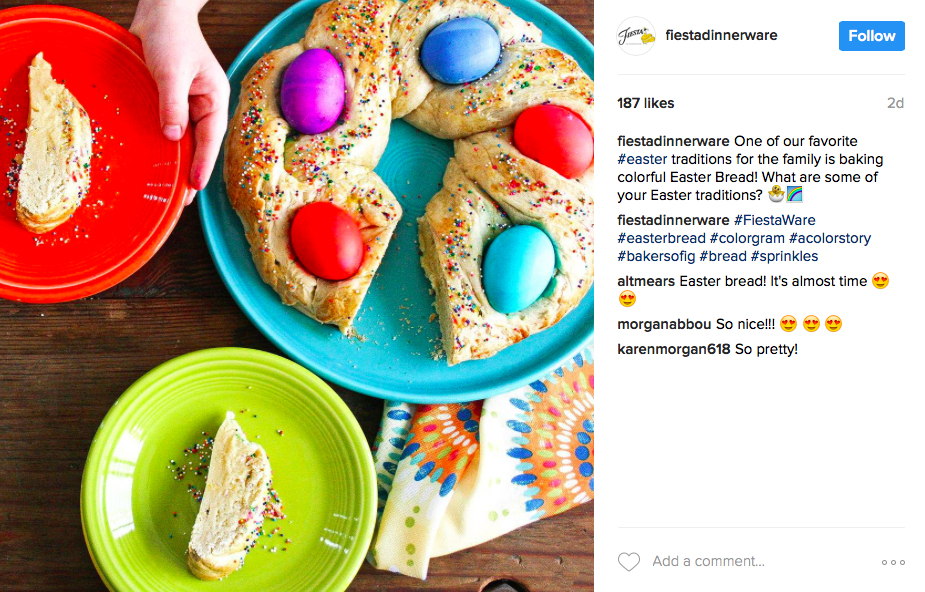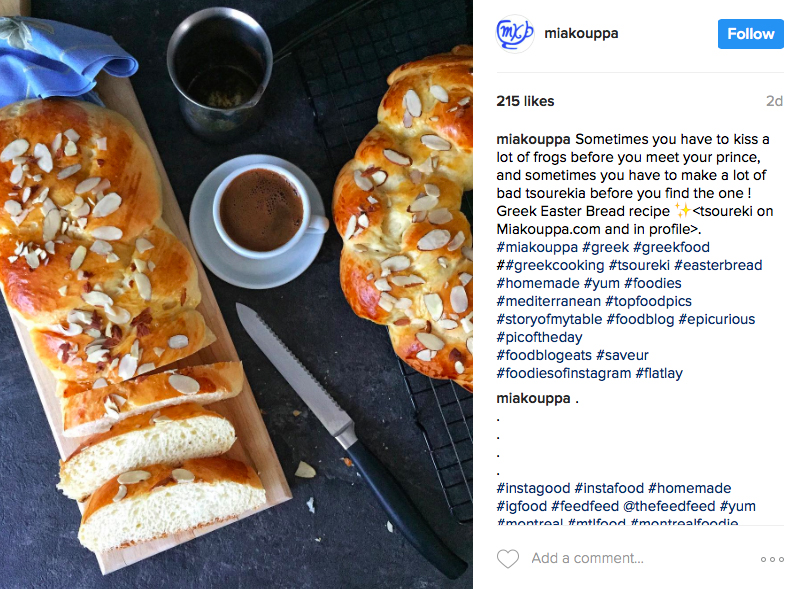Why not take a basket of bread, ham, and vegetables to church with you this year?
Lenten Campaign 2025
This content is free of charge, as are all our articles.
Support us with a donation that is tax-deductible and enable us to continue to reach millions of readers.
The first encounter I had with Easter bread was several years ago when I was invited to an Easter meal with a Greek family who had become close friends. The bread, rich and delicious, was wrapped around whole eggs that had been festively dyed and then cooked into the dough. Alex, whose wonderfully matriarchal mother, Athena, baked the bread, reminisces that when he was a kid, “Other kids wanted a Snickers, but I’d be waiting for Easter to eat bread.”
The second time I encountered Easter bread was years later in an Italian bakery in St. Louis near my house. This version was entirely different and was more like a braided cross that was coated in sesame seeds. Again, rich and delicious.

Although it comes in different shapes and sizes (there are a bunch recipes if you want to make your own), Easter bread does tend to have a few common traits, all of which are symbolic of the holiday. Peter Reinhart, author of Artisan Breads Every Day, mentions some specific similarities and their meanings. For instance, the loaf is always leavened because as it rises it symbolizes Christ rising from the dead. The dough is made with extra eggs, and hard-boiled, dyed eggs might also be woven in. The eggs symbolize rebirth and turn the dough a golden, celebratory color. The bread is often topped with nuts or seeds, which are another symbol of new life. The braided versions use three strands, which evokes the Trinity of the Father, Son, and Holy Spirit.

Read more:
Blessing your children: It’s not just for sneezes
But what really makes the bread special isn’t the taste — it’s the blessing. On Holy Saturday, the day before Easter, there is a tradition of bringing Easter bread, sometimes along with other food in a basket, to the local priest to be blessed before the food is eaten the next day. The basket can be filled any food you like. “I usually make a basket with a loaf of Easter bread, a little sausage, ham, a few eggs, cheese, chocolate, and ideally a little horseradish,” says my friend Michele, who makes a basket every year. “Wine is common, too. I also give our girls each a little basket with some of the food to bring up to the priest.” Everyone’s basket is a little different and there are a variety of foods that can be included. Some are particularly symbolic but there isn’t a “wrong” food to include. Once the foods are blessed, Mom is charged with defending the tasty treats from being sneaked out of the basket and eaten by little hands until the Easter feast when the food is divided up and shared.

Although this tradition of making baskets to be blessed seems to have thrived mostly in Eastern Europe, the blessing for the bread is available for absolutely everyone. In fact, the blessing itself is still in my handy book of priestly blessings called the Roman Ritual. The (admittedly outdated but still lovely) English translation of the blessing is:
O Lord, Jesus Christ, bread of angels, true bread of everlasting life, bless this bread as thou didst the five loaves in the wilderness; that all who eat of it may have health of body and soul.
I have to admit that I didn’t know that blessing was in there (although, amusingly, I knew about and have used the blessing over ale), and my guess is that many priests are unfamiliar with this tradition. Giving the blessing is really easy though, and as a priest I know I would be happy to have parishioners bring breads to be blessed for their Easter table. I know I would be even happier if my loving flock brought an extra loaf to share with their humble, hardworking priest. Because, seriously, this bread is delicious.








